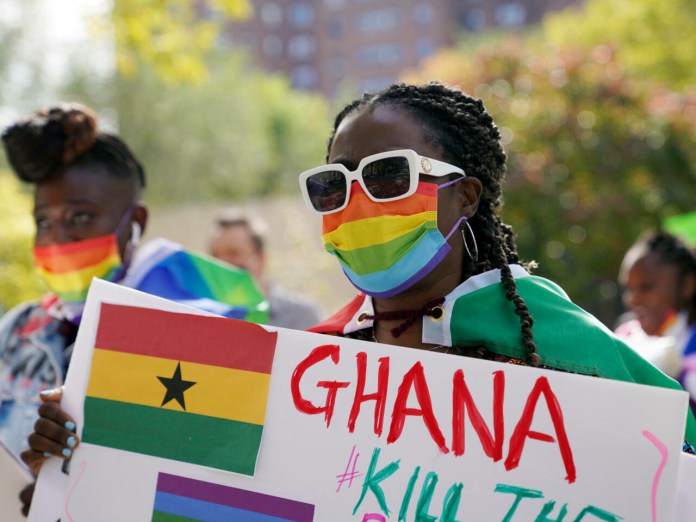adverts
Private legal practitioner, Bobby Banson says President Akufo-Addo could be cited for contempt of court should he receive the Human Sexual Rights and Family Values Bill, 2021, from Parliament.
Speaking on Newsfile on JoyNews, Mr Banson said that although the Presidency is not the body for which the interlocutory injunction application is directed, receiving the bill will aid in undermining the application and that leaves the President liable for contempt.
He explained that “on the 7th of March he (Richard Dela Sky) filed the writ with the statement of the case and then said that the whole process the Parliament went through breached certain provisions of the constitution. Now, because of that Parliament should be restrained from submitting the bill to the President. On March 8, he went ahead to file for an interlocutory injunction, asking that pending the determination of the writ, Parliament should be retrained from presenting that bill to the President.”
adverts
Mr Banson added “Parliament has not denied that they have been served. Now the Attorney General, who is the principal legal adviser to the government, has also been served with the interlocutory application. Now, if you are aware that there is a pending interlocutory injunction application to retain a party from bringing you something and that party brings it to you and you receive it, you have opened yourself up to contempt.”
The lawyer stated that in the Office of the President’s letter, it was made clear that President Akufo-Addo knew the application had been filed and served. Hence, he would like to excuse himself to prevent opening himself up for contempt by receiving the bill.
“If I was the President I would not receive and say take me for contempt. I will not, I will say don’t bring it,” Mr Banson said.
On Monday, March 18, a letter addressed to Parliament and signed by the Executive Secretary to the President, Nana Asante Bediatuo, requested Parliament to refrain from sending the anti-gay bill to President Nana Akufo-Addo for his assent.
The decision, according to Nana Bediatuo Asante, stems from the acknowledgement of two pending applications for an order of interlocutory injunction before the Supreme Court against the bill.
The letter emphasised that it would be improper for Parliament to proceed with transmitting the Bill to President Akufo-Addo for any action until the matters before the court are addressed.
Furthermore, it was disclosed that the Attorney-General has advised the President against taking any action regarding the Bill until the issues raised in the legal suits are resolved by the Supreme Court.
However, Speaker of Parliament, Alban Bagbin said that it is unconstitutional for President Akufo-Addo to refuse the transmission of the Human Sexual Rights and Family Values Bill, 2021.
Meanwhile, Mr Banson said that other applications filed at the Supreme Court show it may not grant an interlocutory injunction that could prevent Parliament from performing its constitutional duty.
“Now if you look at the ex parte NLA case, which was in Supreme Court I think 2009, Samuel Kofi Date-Bah (former SC judge) was very categorical, you cannot use injunction to prevent the performance of a statutory responsibility, because the injunction is an equitable relief and would be only granted if there is no other alternative.”
“Article 2 says that any step taken by any person in breach of the constitution can be struck out by the constitution as being an anality. If you seek to prevent that step from being taken, that is your right in a substantive action. But if you bring an interlocutory injunction, the Supreme Court may, without prejudice to the (anti-gay bill) case pending, ask itself whether there are alternative remedies, that is key,” he stated.
Additionally, Mr Banson said that if the alleged breach of statute highlighted in the injunction application is the basis of the substantive application or writ then the Supreme Court may not grant the interlocutory injunction.
“You can look at ex parte Mobil, I think 2005-2006, Georgina Wood, she said if what you are asking us to determine by this interlocutory process will result in us making conclusions that will affect in resolving the substantive matter we will not.
“If you say that there has been a breach and that is why you are seeking a substantive relief, the Supreme Court will not entertain an interlocutory injunction that will delve into the substantive relief.”


